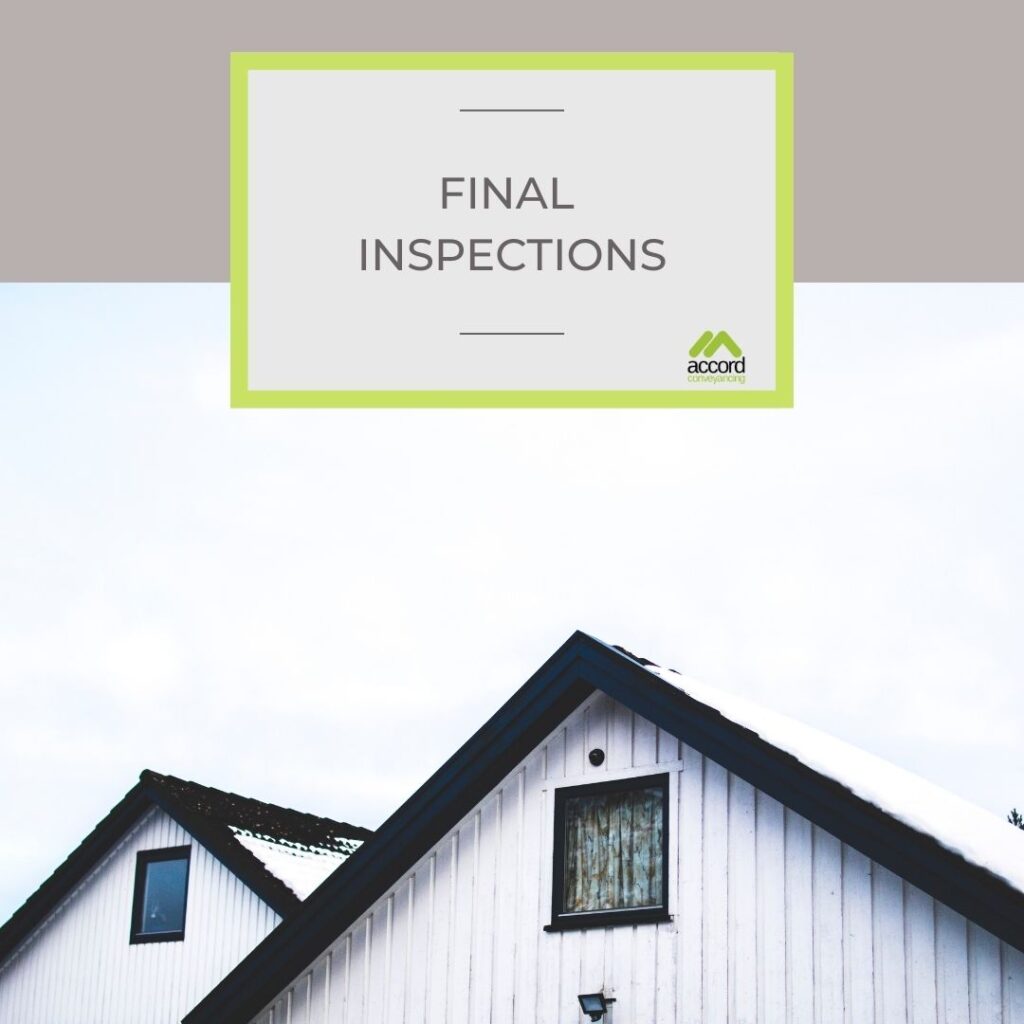Final Inspections
24 April 2025
When buying a home, the excitement of settlement day is often high. However, before the keys are handed over, it’s important for buyers in Victoria to understand their right to inspect the property and identify any potential issues. A final inspection is a crucial step in ensuring everything is as agreed before the transaction is completed.
Right to Inspect Before Settlement
In Victoria, purchasers are entitled to a final inspection of the property in the week leading up to settlement. This right is designed to allow buyers to confirm that:
• The property is in the same condition as when they signed the contract.
• Any agreed-upon repairs or inclusions have been completed (the agreement of which must be contained in a special condition, as any verbal agreements cannot always be relied on).
• Fixtures and fittings specified in the contract are still in place.
Arranging the inspection is usually done through the real estate agent handling the sale, but if there is any dispute over the condition of the property the burden to prove that the property is not as it was at time of contract signing falls to the purchaser. This is why it is important for purchasers to test appliances, take photos and videos, to ensure they have evidence of the condition of the property before they signed the contract.
Common Issues Identified During Final Inspections
During the inspection, purchasers may encounter issues that need to be addressed. Some common problems include:
1. Damage to the Property
Damage that has occurred since signing the contract, such as broken windows or damaged walls, may be grounds to claim compensation or ask for repairs but not always. Yes, the vendor is generally responsible for maintaining the property in its original condition until settlement but the special conditions contained in the contract often provide specific indemnities for the vendor and if the damage is deemed to have been pre-existing, even if the purchaser didn’t notice it before contract signing, then repairing the damage becomes the purchaser’s responsibility.
2. Missing Fixtures and Fittings
The contract may list certain fixtures and fittings that should remain with the property. Missing items like light fittings, curtains, or appliances can lead to disputes if they were specified as inclusions. This is why, during a pre-signing contract review, we advise our purchaser clients to list any specific items they expect to be included to avoid assumptions. Often, things like a dishwasher, or garden features, security cameras and mounted televisions or speakers, are items that the purchaser expects to remain with the property while the vendor expects to remove them as their personal belongings. To avoid the ambiguity of what is deemed a fixture and fittings, a list should clearly be written into the contract at the time of signing.
3. Incomplete Repairs
If the contract included a requirement for repairs or maintenance, the final inspection is the time to verify whether the work has been completed satisfactorily. If we are instructed by our purchaser client prior to contract signing that they require a special condition placing the obligation for repairs on the vendor, we will ensure the special condition is worded correctly to provide adequate protection or recourse for the purchaser if the repairs are not completed prior to settlement.
A poorly worded, or inadequate, special condition can create a range of problems when it comes to repairs.
4. Unclean or Unremoved Items
Sometimes, vendors leave behind personal items or fail to clean the property thoroughly. This can be frustrating for purchasers expecting a clean and empty home. Whilst a vendor is not legally obligated to undertake a professional clean of the property, or even mow the lawns, if a purchaser identifies a significant amount of rubbish or debris at the property then a special condition should be included in the contract to ensure the vendor removes it. Otherwise, a purchaser may be forced to settle with all that rubbish.
Steps to Take if Issues Arise
If problems are discovered during the final inspection, purchasers should:
• Notify their solicitor or conveyancer immediately.
• Document the issues with photos and detailed notes.
• Discuss possible remedies with the vendor through their legal representatives. Potential solutions may include delaying settlement, negotiating a price reduction, or requiring immediate rectification of the problem if the vendor is agreeable.
Avoiding Problems
To minimize potential disputes, purchasers should:
• Obtain a review of the contract of sale by their legal representative to understand what is included before they sign.
• Conduct thorough inspections before signing the contract.
• Clearly document any agreements related to repairs or inclusions.
Conclusion
A final inspection is a vital step in the home-buying process in Victoria. By understanding your rights and being prepared to address any issues, you can help ensure a smooth settlement and move into your new home with confidence. If you are in the market to buy a property and wish to avoid these potential issues, please contact our office for a pre-signing contract review.
